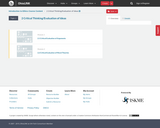
56 Results


This module contains links to two textbooks on critical thinking and indicates which sections are most relevant to thinking well about ethics.[ Image - Nina Paley, "You May Be Right" - CC BY-SA 3.0 ]
- Subject:
- Philosophy
- Material Type:
- Module
- Author:
- OER Librarian
- Date Added:
- 05/07/2021

Excerpt edited for the General Intro to Ethics Student:Ethics for A-Level: Introduction -Mark Dimmock and Andrew Fisher, Ethics for A-Level. Cambridge, UK: Open Book Publishers, 2017, https://doi.org/10.11647/OBP.0125 (CC BY 4.0). [Image - olarte.ollie, "detective" - licensed by CC BY-SA 2.0]
- Subject:
- Philosophy
- Material Type:
- Module
- Author:
- OER Librarian
- Date Added:
- 05/07/2021
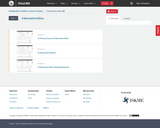
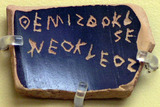
This module presents sources in normative ethics. There are two types of material: first (in "Section 2"), there is a collection of primary sources with introductions, biographical sketches, and reading/reflecting questions; second (in "Section 3"), there is a link to a textbooks and the sections therein that significantly address normative theory via primary sources.[Image Source - Marsayas, AGMA Ostrakon Themistocle3 - CC BY-SA 3.0. ]
- Subject:
- Philosophy
- Material Type:
- Module
- Author:
- OER Librarian
- Date Added:
- 05/07/2021
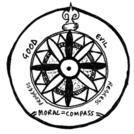
This module presents two resources. First (in "Section 2"), selections from a textbook that summarize major moral theories; second (in "Section 3"), a link to the Internet Encyclopedia of Philosophy entry on Ethics.[Image source: "Moral Compass" by Paul Downey is licensend under CC BY2.0 ]
- Subject:
- Philosophy
- Material Type:
- Module
- Author:
- OER Librarian
- Date Added:
- 05/07/2021
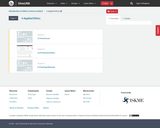
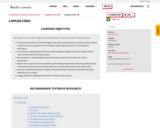
- Subject:
- Philosophy
- Material Type:
- Module
- Author:
- OER Librarian
- Date Added:
- 05/07/2021
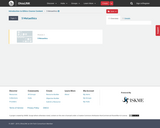
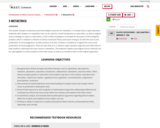
This section includes introductory and intermediate resources for metaethics. It includes links to open education textbooks with chapters on metaethics that can be used for a brief introduction to meta-ethics, as well as original source readings on topics in meta-ethics. A link to Plato's Euthyphro is included for discussion of the Euthyphro problem, which is related to criticisms of Divine Command Theory and issues having to do with the source and justification of moral judgments. As well, portions of Hume's Treatise is included as it regards the source and justification of moral judgments. There are also links to G. E. Moore's Open Question argument and other links to help students understand the main issues in metaethics. The textbook chapters and original source materials can be used together to orient students to the main issues, as well as to introduce them to the original arguments.
- Subject:
- Philosophy
- Material Type:
- Module
- Author:
- OER Librarian
- Date Added:
- 05/07/2021
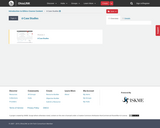
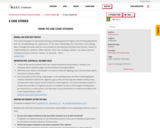
- Subject:
- Philosophy
- Material Type:
- Module
- Author:
- OER Librarian
- Date Added:
- 05/07/2021
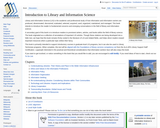
Library and Information Science (LIS) is the academic and professional study of how information and information carriers are produced, disseminated, discovered, evaluated, selected, acquired, used, organized, maintained, and managed. This book intends to introduce the reader to fundamental concerns and emerging conversations in the field of library and information science.
A secondary goal of this book is to introduce readers to prominent writers, articles, and books within the field of library science. The book originated as a collection of annotations of important LIS articles. Though these citations are being developed into a fuller text, we hope that this book remains firmly rooted in the literature of LIS and related fields, and helps direct readers toward important resources when a particular topic strikes their fancy.
- Subject:
- Applied Science
- Information Science
- Material Type:
- Textbook
- Provider:
- Wikibooks
- Date Added:
- 05/22/2019

The goal of this text is to present philosophy to newcomers as a living discipline with historical roots. While a few early chapters are historically organized, my goal in the historical chapters is to trace a developmental progression of thought that introduces basic philosophical methods and frames issues that remain relevant today. Later chapters are topically organized. These include philosophy of science and philosophy of mind, areas where philosophy has shown dramatic recent progress. This text concludes with four chapters on ethics, broadly construed. I cover traditional theories of right action in the third of these. Students are first invited first to think about what is good for themselves and their relationships in a chapter of love and happiness. Next a few meta-ethical issues are considered; namely, whether they are moral truths and if so what makes them so. The end of the ethics sequence addresses social justice, what it is for one’s community to be good. Our sphere of concern expands progressively through these chapters. Our inquiry recapitulates the course of development into moral maturity
- Subject:
- Arts and Humanities
- Philosophy
- Material Type:
- Textbook
- Provider:
- Bellevue College
- Author:
- W. Russ Payne
- Date Added:
- 05/22/2019
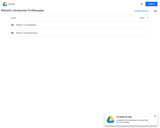
This is an introductory course to Philosophy, which is the study of general and fundamental problems such as those connected with existence, knowledge, values, reason, mind, and language. Students will be introduced to the primary branches of Philosophy - ethics, logic, metaphysics, and epistemology. The course considers philosophers and works of Western Philosophy, including Plato, Hebrew scripture, Schopenhauer, Swedenborg, Buber, Kant, Hume, Locke and Berkeley.
- Subject:
- Arts and Humanities
- Philosophy
- Material Type:
- Full Course
- Homework/Assignment
- Lecture Notes
- Lesson Plan
- Reading
- Syllabus
- Provider:
- Washington State Board for Community & Technical Colleges
- Provider Set:
- Open Course Library
- Date Added:
- 10/31/2011
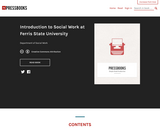
This book was written by MSW students as their final project for their Capstone class. Students were each assigned a chapter of the book to write to show that they had achieved competency as a Master’s level social worker. Chapters were assigned based on student interest and experience in certain areas of the field.
- Subject:
- Social Science
- Social Work
- Material Type:
- Textbook
- Provider:
- Ferris State University
- Author:
- Aikia Fricke
- Ainslee McVay
- Brian Majszak
- Colton Cnossen
- Eden Airbets
- Jenae Finney
- Jennifer Lamoreaux
- Kassandra Weinberg
- Katlin Hetzel
- Keith Bogucki
- Lindsey Bronold
- Melissa Ryba
- Micah Beckman
- Sandra Tiffany
- Tracey Stevens
- Troy Richard
- Tyler Felty
- Date Added:
- 08/28/2017
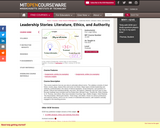
This course explores how we use story to articulate ethical norms. The syllabus consists of short fiction, novels, plays, feature films and some non-fiction. Major topics include leadership and authority, professionalism, the nature of ethical standards, social enterprise, and questions of gender, cultural and individual identity, and work / life balance. Materials vary from year to year, but past readings have included work by Robert Bolt, Michael Frayn, Timothy Mo, Wole Soyinka, H. D. Thoreau, and others; films have included Crouching Tiger, Hidden Dragon, Hotel Rwanda, The Descendants, Motorcycle Diaries, Three Kings, and others. Draws on various professions and national cultures, and is run as a series of moderated discussions, with students centrally engaged in the teaching process.
- Subject:
- Business and Finance
- Management
- Material Type:
- Full Course
- Provider:
- M.I.T.
- Provider Set:
- M.I.T. OpenCourseWare
- Author:
- Leigh Hafrey
- Date Added:
- 01/01/2015
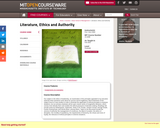
Our subject is the ethics of leadership, an examination of the principles appealed to by executive authority when questions arise about its sources and its legitimacy. Most treatments of this subject resort to case-studies in order to illustrate the application of ethical principles to business situations, but our primary emphasis will be upon classic works of imaginative literature, which convey more directly than case-studies the ethical pressures of decision-making. Readings will include works by Shakespeare, Sophocles, Shaw, E.M. Forster, Joseph Conrad, George Orwell, Fyodor Dostoyevsky, and Henrik Ibsen, among others. Topics to be discussed include the sources of authority, the management of consensus, the ideal of vocation, the ethics of deception, the morality of expediency, the requirements of hierarchy, the virtues and vices of loyalty, the relevance of ethical principles in extreme situations.
- Subject:
- Business and Finance
- English Language Arts
- Literature
- Management
- Material Type:
- Full Course
- Provider:
- M.I.T.
- Provider Set:
- M.I.T. OpenCourseWare
- Author:
- Kibel, Alvin C.
- Date Added:
- 01/01/2002
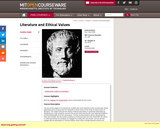
Examines competing ethical concepts and the ethical implications of certain actions and commitments by close reading of literary works. Topics include: origins of morality, ideals of justice, the nature of the virtues, notions of responsibility, ethics and politics, and the ethics of extreme situations. Philosophic texts by Plato, Aristotle, Machiavelli, Hobbes, and Kant. Narrative and dramatic texts by Sophocles, Euripides, Shakespeare, Swift, Ibsen, Shaw, Dostoyevsky, and Conrad; plus some Biblical materials. The aim of this subject is to acquaint the student with some important works of systematic ethical philosophy and to bring to bear the viewpoint of those works on the study of classic works of literature. This subject will trace the history of ethical speculation in systematic philosophy by identifying four major positions: two from the ancient world and the two most important traditions of ethical philosophy since the renaissance. The two ancient positions will be represented by Plato and Aristotle, the two modern positions by Immanuel Kant and John Stuart Mill. We will try to understand these four positions as engaged in a rivalry with one another, and we will also engage with the philosophy of Thomas Hobbes, which offers a bridge between ancient and modern conceptions and provides a source for the rivalry between the viewpoints of Kant and Mill. Further, we will be mindful that the modern positions are subject to criticism today by new currents of philosophical speculation, some of which argue for a return to the positions of Plato and Aristotle.
- Subject:
- Arts and Humanities
- English Language Arts
- Literature
- Material Type:
- Full Course
- Provider:
- M.I.T.
- Provider Set:
- M.I.T. OpenCourseWare
- Author:
- Kibel, Alvin C.
- Date Added:
- 01/01/2002

Kurt Heisinger and Joe Ben Hoyle believe that students want to learn accounting in the most efficient way possible, balancing coursework with personal schedules. They tend to focus on their studies in short intense segments between jobs, classes, and family commitments. Meanwhile, the accounting industry has endured dramatic shifts since the collapse of Enron and WorldCom, causing a renewed focus on ethical behavior in accounting. This dynamic author team designed Managerial Accounting to work within the confines of today’s students’ lives while delivering a modern look at managerial accounting.
Managerial Accounting was written around three major themes: Ready, Reinforcement and Relevance. This book is aimed squarely at the new learning styles evident with today’s students and addresses accounting industry changes as well.
- Subject:
- Accounting
- Business and Finance
- Management
- Material Type:
- Textbook
- Provider:
- The Saylor Foundation
- Provider Set:
- Saylor Textbooks
- Author:
- Joe Hoyle
- Kurt Heisinger
- Date Added:
- 05/22/2019